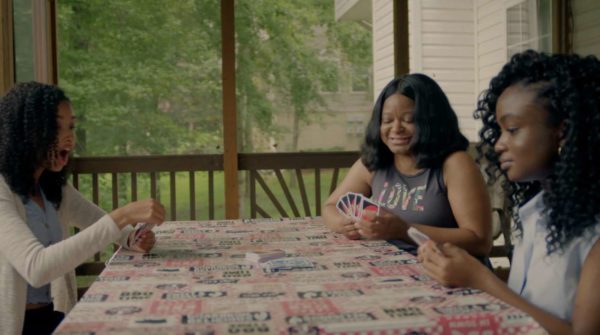
Sponsored by Monday Properties and written by ARLnow, Startup Monday is a weekly column that profiles Arlington-based startups, founders, and other local technology news. Monday Properties is proudly featuring Shirlington Gateway. The new 2800 Shirlington recently delivered a brand-new lobby and upgraded fitness center, and is adding spec suites with bright open plans and modern finishes. Experience a prime location and enjoy being steps from Shirlington Village.
Courthouse-based Storyblocks, an online platform for stock video footage, has released new video content meant to close the diversity gap in media and advertising.
The company, at 1515 N. Courthouse Road, trained eight creators to make video collections specifically depicting people of color and members of the LGBT communities doing everyday activities. These reels are part of a campaign, Re: Stock, which was launched to address the need for videos of people with different racial identities, sizes, abilities and sexual orientations.
“Sourcing from authentic places will lead to authentic footage and authentic representation,” said Sydney Carlton, Director of Brand Marketing at Storyblocks.
The first batch of videos were released starting in mid-October. Although the pandemic delayed the launch from this spring Storyblocks aims to double its diverse content by the end of 2021 and quadruple it by the end of 2022.
The push comes after years of feedback from clients asking for more diverse footage, since existing footage tends to skew towards white subjects and straight couples.
“We were receiving hundreds and hundreds of comments for more people of color and more same-sex couples,” Carlton said. “It really ran the gamut, but it was loud and a lot.”
A recent company survey found that 72% of users — who include independent filmmakers, advertisers and journalists — said diverse content is important for their projects, but people of color are represented in just 5% of Storyblocks’ current digital library.
“You can only find happy white women eating salads,” Carlton said.
The problem is primarily due to location and access, since most stock video contributors hail from Eastern Europe, where creators do not have the same access to a diverse array of subjects, she said.
The first collections were produced by Monica Singleton and Samson Binutu. They focused on Black families educating their children, Black teens and adults in romantic relationships, family dinners at home and Black women enjoying the outdoors.
“These are things people do every single day,” Carlton said. “That’s the power of the campaign.”
In a statement, Singleton said her personal experience searching footage libraries made her excited to join the project.
“In the past when I’ve looked for certain stock footage or music, it’s been really hard to find representation for people that look like me,” Singleton said.
Future Storyblocks projects will focus on people with from other racial identities, and with a range of body shapes and sizes as well as abilities. Going deeper, Carlton said the goal of Re: Stock is invert stereotypes of who plays board games, does homework with their kids, and lives together.
“That’s where you instill a sense of humanity in people,” she said.
The company has thrived during the pandemic and was acquired by a private-equity firm in Boston this summer.

